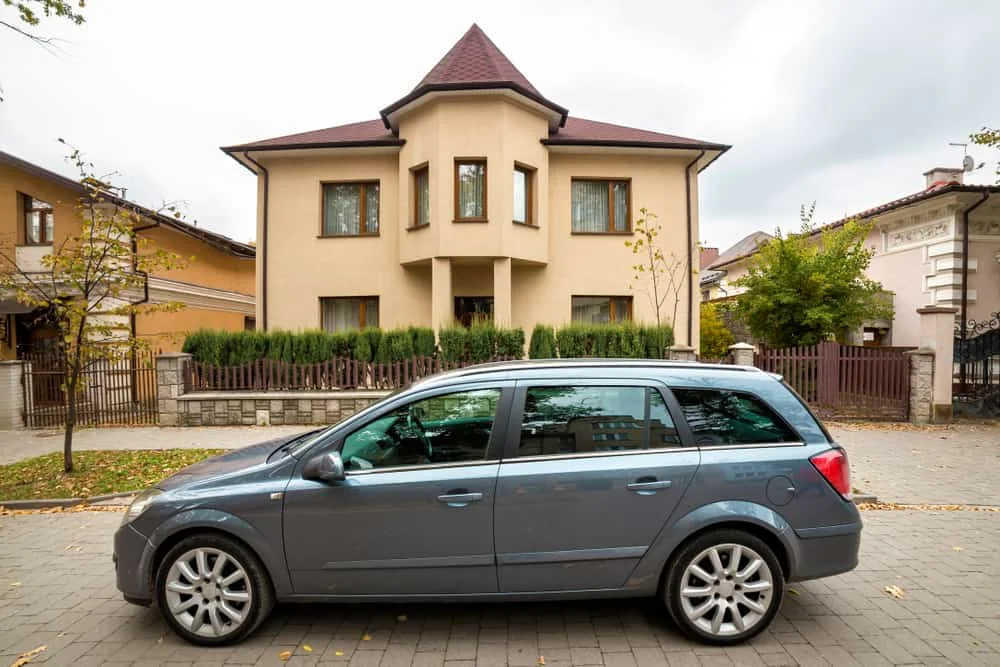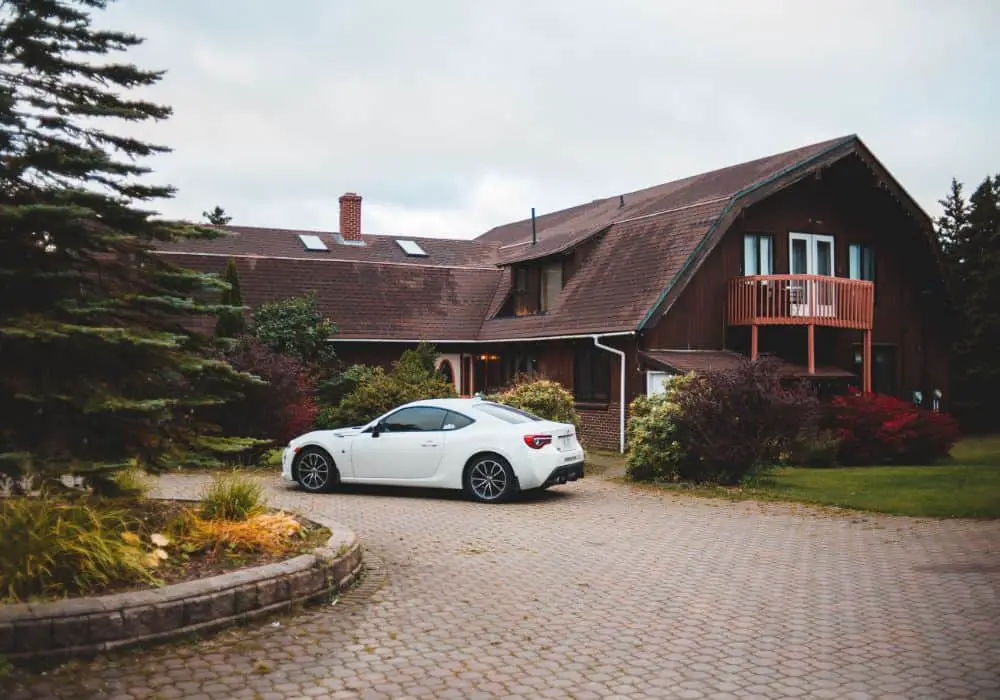Last Updated on August 5, 2023 By Emma W. Thomas
Parking in front of a neighbor’s house can be considered inconsiderate, as it may limit their parking space and cause inconvenience. It’s best to communicate with your neighbor and find a mutually respectful parking solution if possible.
Are There Regulations About Parking In Front Of Neighbor’s Home?
When it comes to parking, it’s always important to consider the rules and regulations in your neighborhood. Parking in front of your neighbor’s home can be a sensitive topic, as it may disrupt their daily routine or cause inconvenience. To help you navigate this situation smoothly, we have gathered some key information about parking regulations in front of your neighbor’s home.
1. Local Municipal Codes:
Before parking in front of your neighbor’s home, it’s essential to familiarize yourself with the local municipal codes or bylaws governing parking regulations. These codes can vary from city to city and may specify restrictions on parking in certain areas, durations, or even vehicles that are permitted to park.
2. Street Signs and Markings:
Keep an eye out for any street signs or pavement markings that indicate parking restrictions. For instance, “No Parking” signs, yellow lines, or designated parking areas can prohibit or limit parking in front of residences. Be sure to obey these signs and markings to avoid any potential violations.
3. Considerate Parking:
Even if there are no explicit regulations, it’s always wise to practice considerate parking in front of your neighbor’s home. Avoid blocking their driveway, impeding traffic, or parking in a way that obstructs their view. Also, be mindful of parking for an extended period, as it could inconvenience your neighbor.
4. Homeowner’s Association (HOA) Rules:
If you live in a neighborhood with a homeowner’s association (HOA), it’s crucial to review the parking regulations outlined in the association’s rules. HOA rules might have specific guidelines on parking vehicles in front of other residents’ homes. Familiarize yourself with these rules to ensure you are in compliance.
5. Open Communication:
Maintaining strong communication with your neighbor is key to avoiding conflicts related to parking. If you anticipate needing to park in front of their home regularly, consider discussing it with them beforehand. Being transparent and open about your intentions can help alleviate any concerns and foster a positive relationship.
6. Parking Permits:
In some areas, local authorities issue parking permits to residents. These permits grant specific privileges, such as parking in designated zones or exempting residents from time restrictions. If you are unsure about parking rules, check with your local municipal office to inquire about the availability of parking permits and their requirements.
7. Public Safety and Emergency Vehicles:
It’s important to remember that public safety and emergency vehicles may need direct access to residential areas in case of emergencies. Always avoid blocking fire hydrants, fire lanes, or any areas that could impede the progress of emergency responders.
Can You Prevent Someone From Parking In Front Of Your House?

If the street in front of your house is public, there’s not much you can do to prevent neighbors from parking there. They have as much right to park outside your house as you do so long as they do not block your driveway. Public streets are considered on a first-come, first-serve basis when it comes to parking. However, you can politely talk to them and request them to stop parking outside your house as it inconveniences you. If they have a sense, this habit should stop, and you can enjoy parking there yourself. If your neighbor is adamant and keeps parking outside your house even after talking to them, always ensure you park there first or live with it.
Can I Put A No Parking Sign By My House?
In general, putting up a “No Parking” sign in front of your house is not allowed on public streets unless you have the proper authorization from the local government or relevant authorities. Public streets are typically owned and managed by the city or municipality, and they have the authority to regulate parking rules and signage.
If you are facing parking issues in front of your house, here are some steps you can take:
- Check local regulations: Review local parking regulations and see if there are any restrictions or permits available for parking in your area.
- Speak with your neighbors: Have a conversation with your neighbors to address parking concerns politely. They might not be aware of the inconvenience they are causing, and a friendly discussion can often lead to a resolution.
- Contact local authorities: If the parking problem persists, reach out to your local parking enforcement or city officials to discuss the issue. They may suggest solutions or enforce parking rules in your area.
- Apply for permits: Some cities offer residential parking permits for residents to ensure they have priority parking in their neighborhoods. Check if your area provides such permits and apply for them if eligible.
- Private property: If the area where you want to put up a “No Parking” sign is part of your private property (e.g., a driveway or a private road), you have more control over signage. However, you should still check local regulations to ensure compliance with any rules related to private property signage.
What Can I Do To Prevent A Neighbor From Parking Outside My House?
As much as it is not illegal for neighbors to park outside your house, this habit is annoying and inconveniences your family. Here are some steps to take to prevent your neighbor from parking outside your house. Try them and lets us know what works for you.
- Confront your neighbor and politely ask them to stop
- Leave a note on their car
- Put up physical barriers and “no parking” signs
- Park outside your house before they do
- Call the towing company
1. Confront Your Neighbor And Politely Ask Them To Stop
Find a time when your neighbors are not too busy to listen to you and talk to them. You can choose a chilled-out Sunday afternoon to approach them. Talking to your neighbor and letting them know that their parking habits don’t sit well with you should be your first step. Sometimes, they could be parking in front of your house without knowing it upsets you. Be polite and respectful throughout the conversation, and keep in mind they have not committed an offense. Also, listen to your neighbors and let them explain themselves. They might have a justifiable reason why they love parking outside your house. Show them that you are trying to understand them by putting yourself in their shoes.
If your neighbors have a valid reason why they need to park in front of your house, have a mutual agreement. Sometimes the neighbors may refuse to stop parking in front of your house, especially if they are parking on a public street. In such a case, work out a plan that’s beneficial to all of you. You can choose to alternate turns parking or exchange service for you to reserve the spot exclusively.
2. Leave A Note On Their Car
If you’ve already talked to your neighbor, but they don’t comply, try putting up a note on their car as a friendly reminder. Please resist the temptation to be passive-aggressive while at it and jot down a kind note. Ensure the content of the note is straight to the point and your handwriting or font is legible. Stick the note somewhere between the wipers and windshield for ease of visibility and to keep it from being blown away by the wind
3. Put Up Physical Barriers And “No Parking” Signs
If you are not sure which of your neighbor’s parks in front of your house or talking to them isn’t working, use signs. In some states, you need permission to put up signs, so make sure you enquire with local authorities beforehand. You can buy traffic cones or ‘no parking’ signs and put them in the parking in front of your house. These options are affordable and easily available, and it is unlikely that your neighbor will overlook them. Ensure these signs do not obstruct the flow of traffic and are clearly visible from any direction.
4. Park Outside Your House Before They Do

If all other methods fail, you have to do what you got to do. Take the petty way out and ensure you park at that spot before anyone else does. This will need you to spy on your neighbors to know their schedule and ensure you beat them by getting home before they do. This method could cause a strained relationship with your neighbor, so we advise you to tread carefully.
5. Call The Towing Company
Depending on the laws in your state, you can call the towing company if the problem persists. If your neighbor parks in front of your house for more than 24 hours, the car can be towed. Here are some conditions Under Washington state law where a car can be towed for free:
- When the car is parked on the residential property illegally
- When the car blocks your property that has a “no parking” sign
- When a car has been parked for 24 hours, even in a driveway without a sign
If the car parked in front of your house fits any of this description, you can call the tow company and have it removed. Check with your state laws for other conditions that may favor you.
Conclusion
Parking in front of your neighbor’s house is impolite but not illegal. It inconveniences them, it is also annoying and can lead to a strained relationship between you. If you ever need to park in front of a neighbor’s house, inform them in advance. Doing this will prepare them psychologically and help them look for an alternative parking space.
What happens when you have neighbors who park outside your house without informing you? The best way is first to approach them and let them know you find it rude. Some people may not find anything wrong with parking outside your house in public parking or street. Make them understand your frustrations and come up with a mutual agreement. If they continue parking there long after the talk, you can now take more drastic measures.
Put up signs or call the authorities and towing company. These drastic measures may lead to strained relations, so go easy. Sometimes, your peace and a cordial relationship with your neighbors is worth more than the parking space. Weigh your options and determine if the confrontation is worth it. If the neighbors only park once in a while, you can choose to overlook it. A peaceful neighborhood is worth the sacrifice.
References:
https://www.gfloutdoors.com/is-it-rude-to-park-in-front-of-neighbors-house/
https://www.pressenterprise.com/2018/12/31/good-parking-makes-good-neighbors-especially-in-housing-tracts/
Emma is a graduate of Domestic Science or Family and Consumer Sciences (Home Economics) from the University of Wisconsin. She has 7 years of experience Working with the strategic section of BestBuy and now writing full-time for Homeeon.
From Managing the Home, Interiors, Cleaning, and Exteriors to Gardening and everything about Making A Home Liveable – is her passion and this Homeeon is the result of this.
Emma loves decorating her home with the best stuff found online. She cares about quality over anything and writes reviews about them here in Homeeon. Get in touch with her over Pinterest.
Keep reading her blogs.

